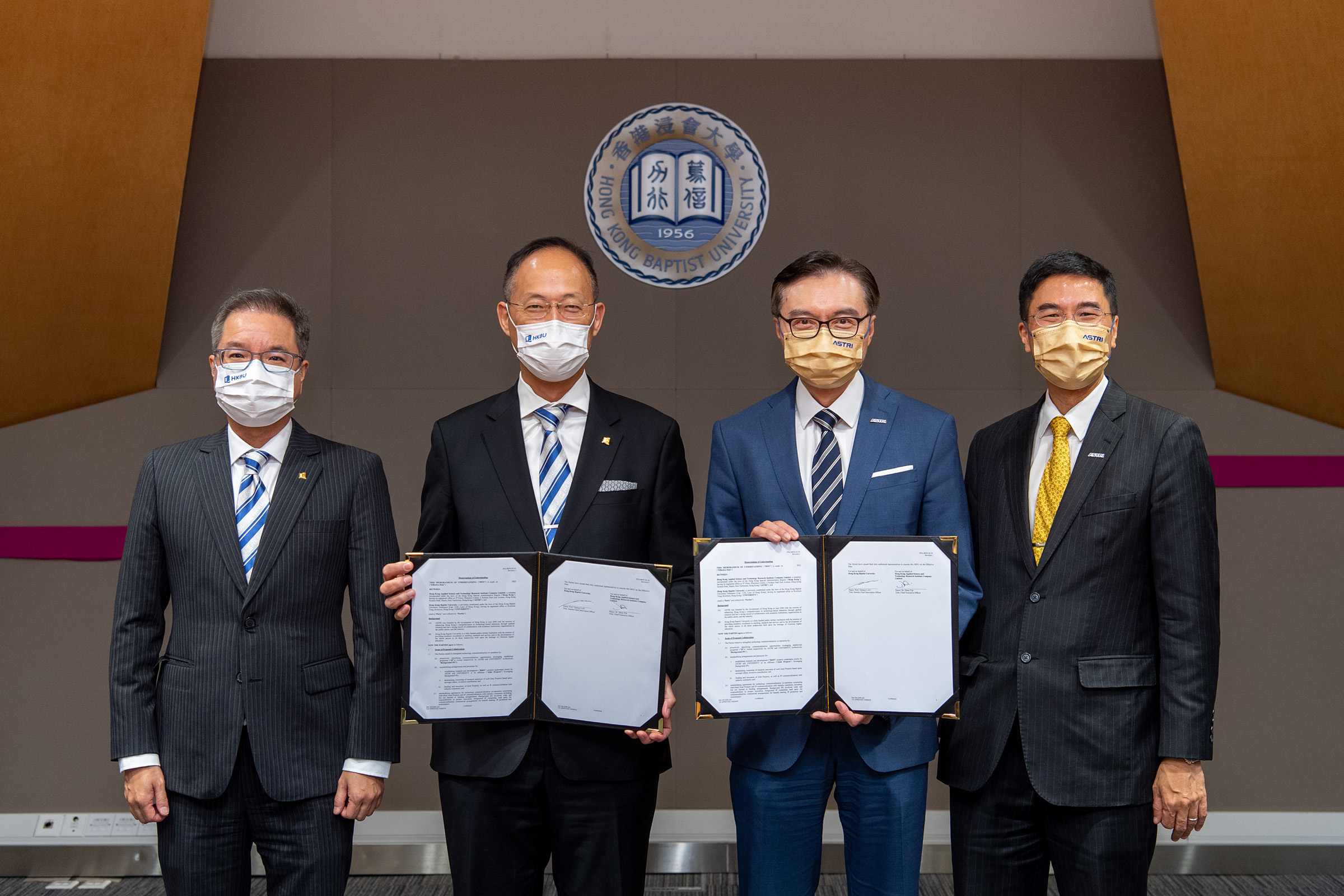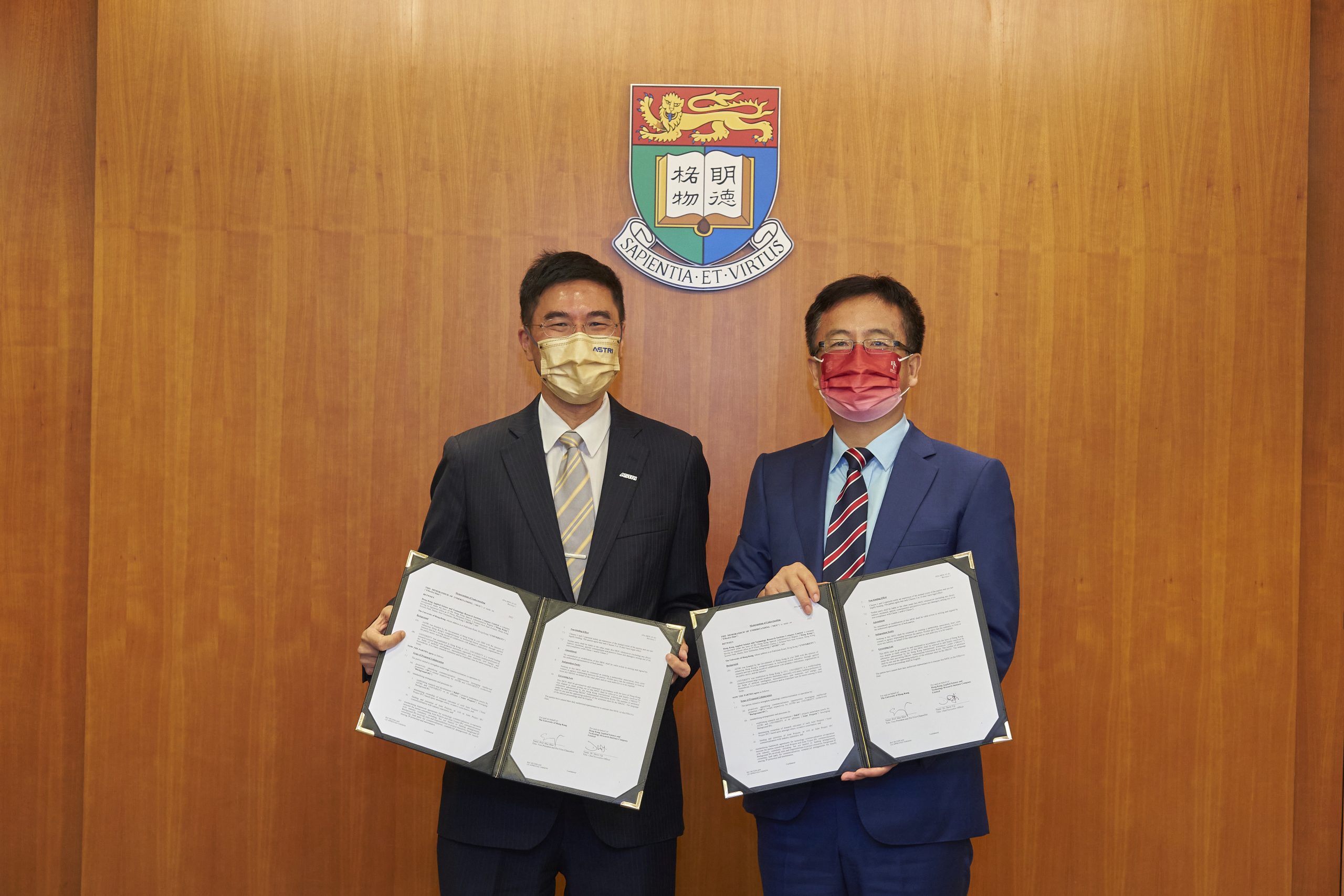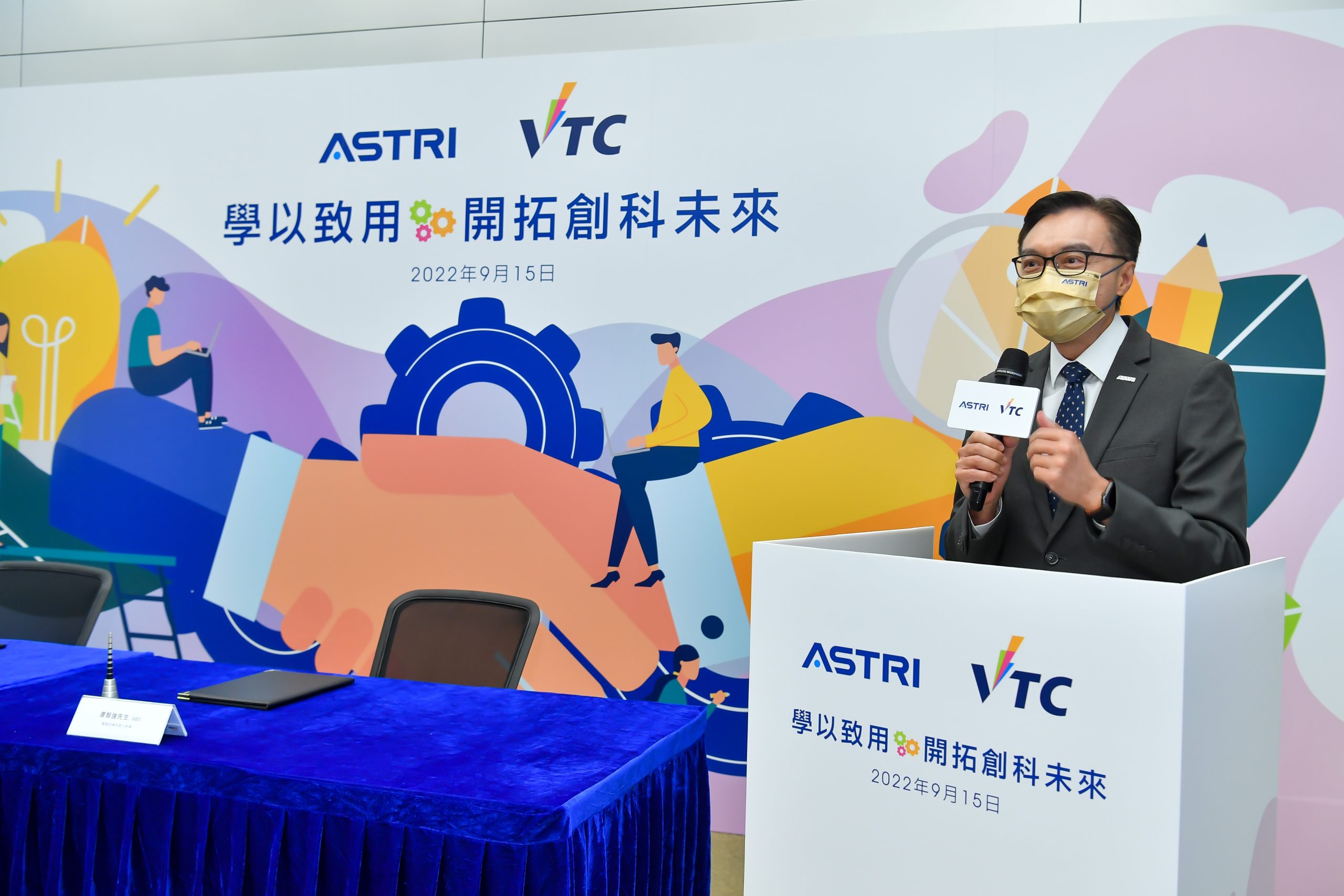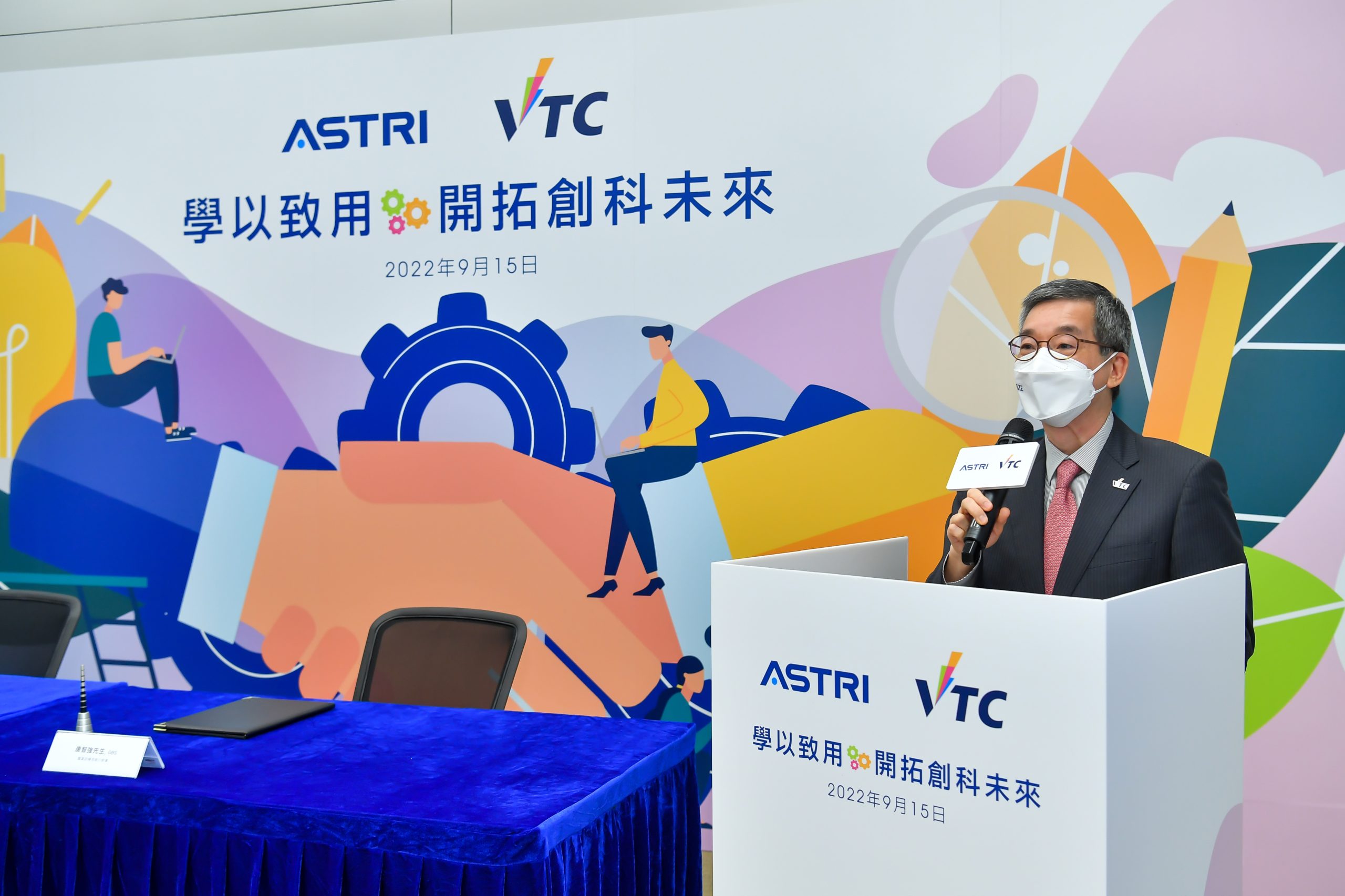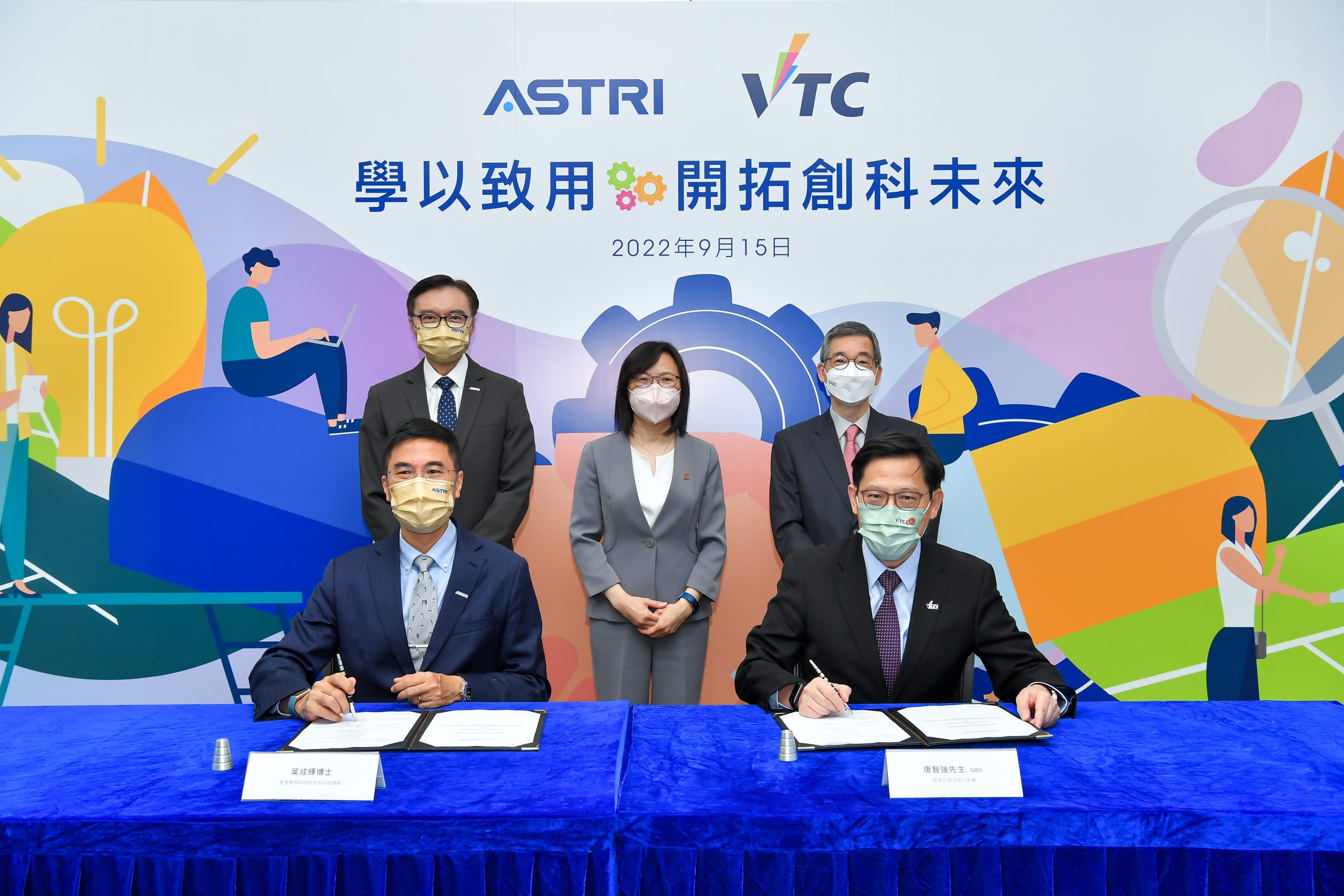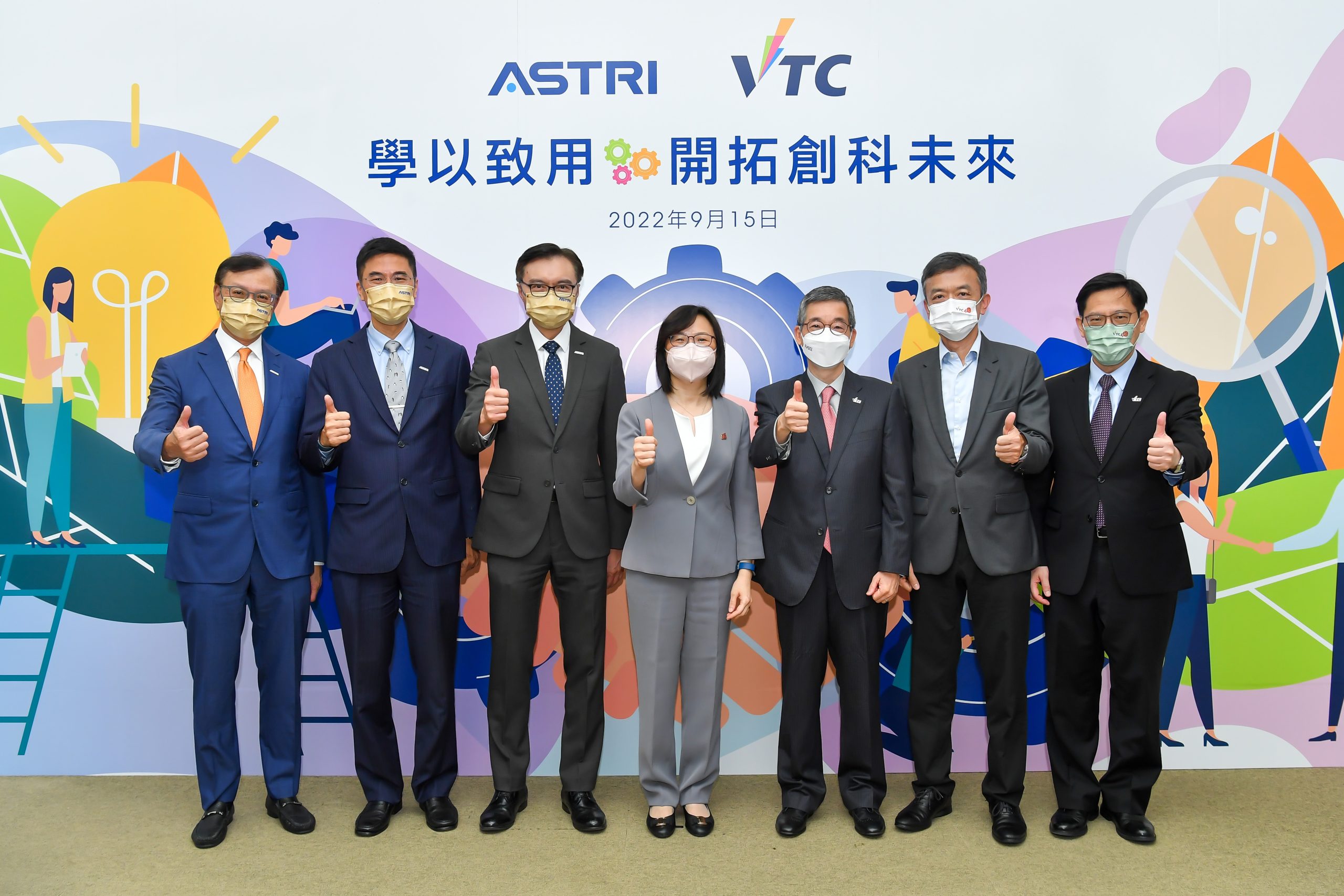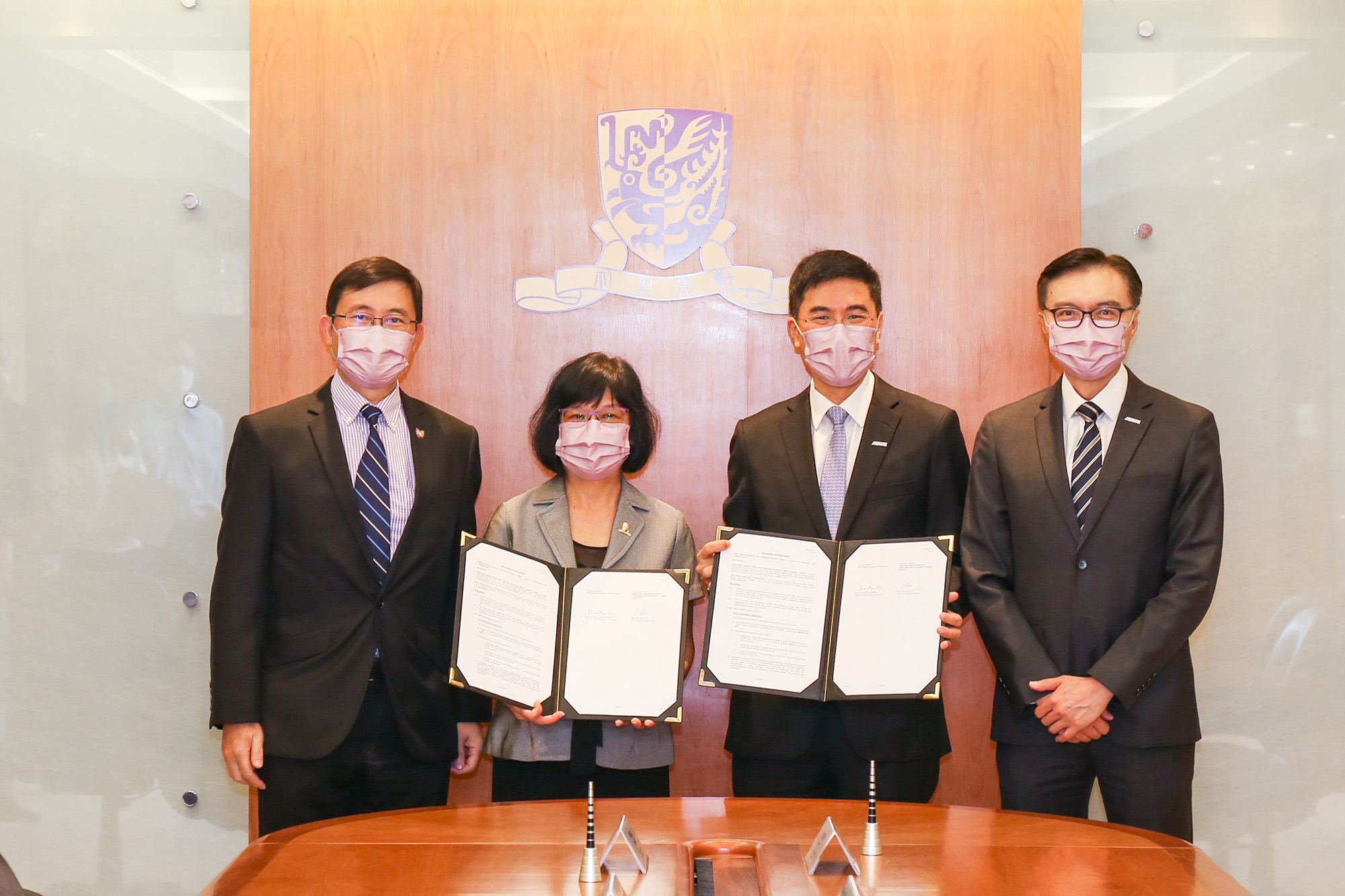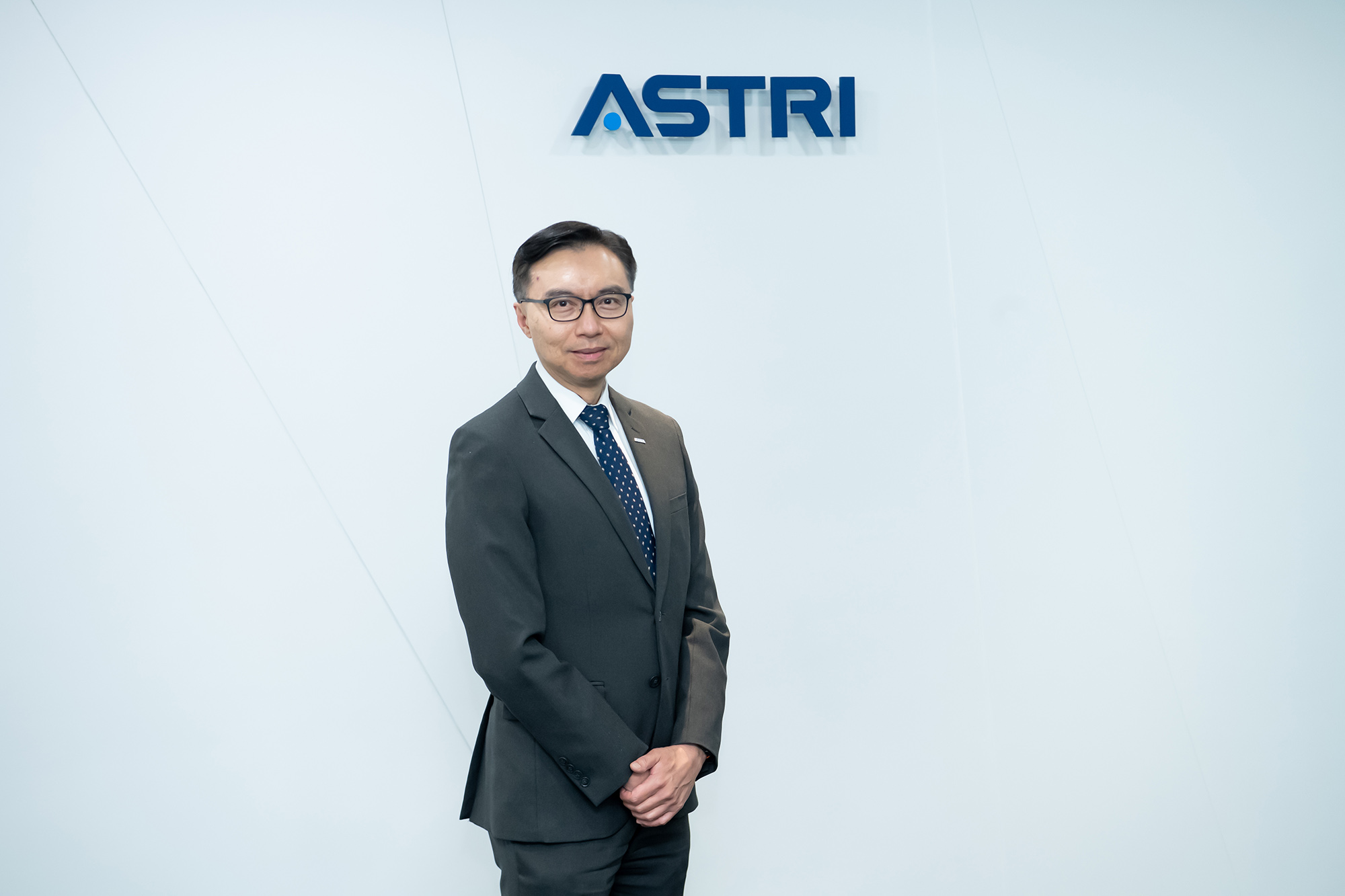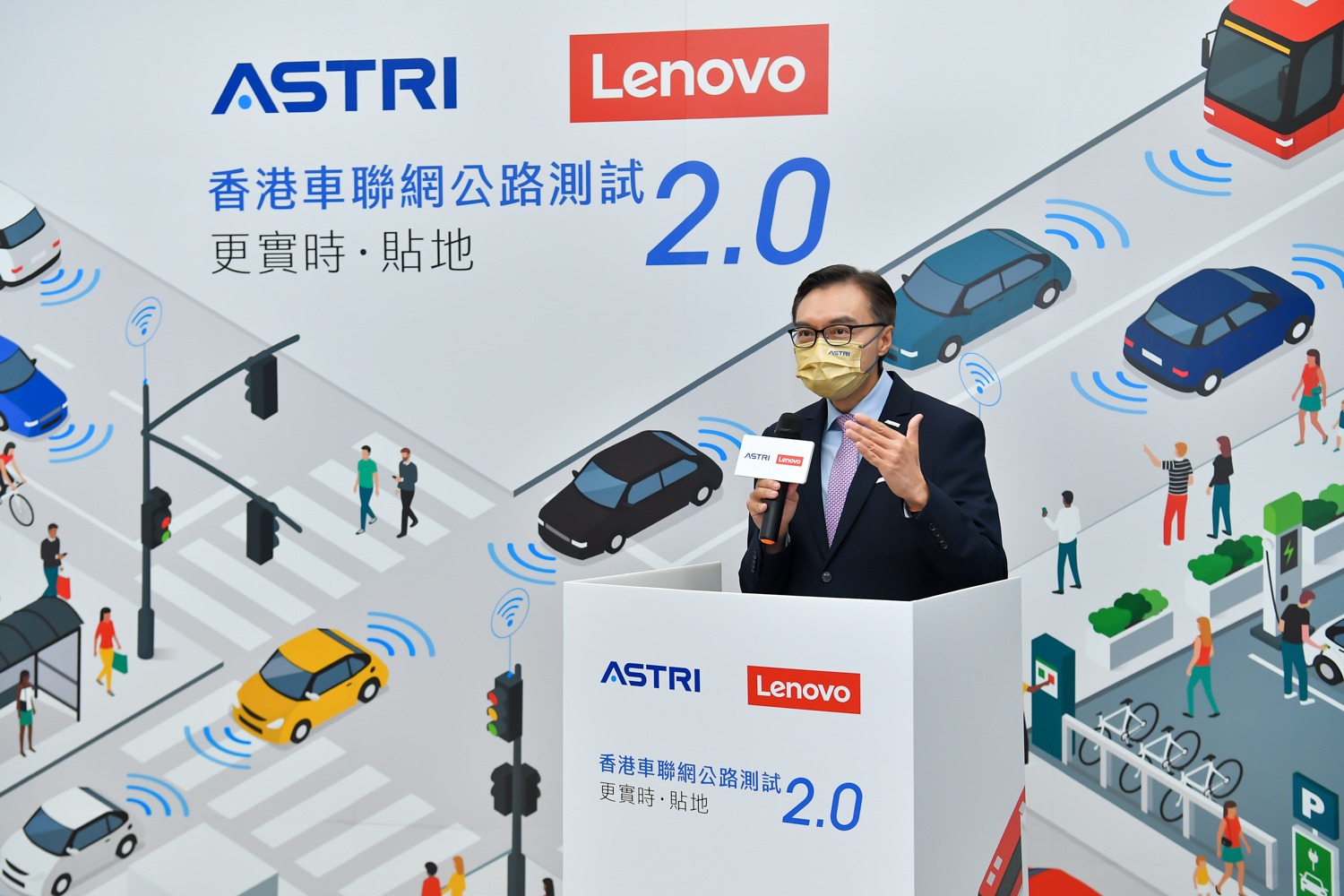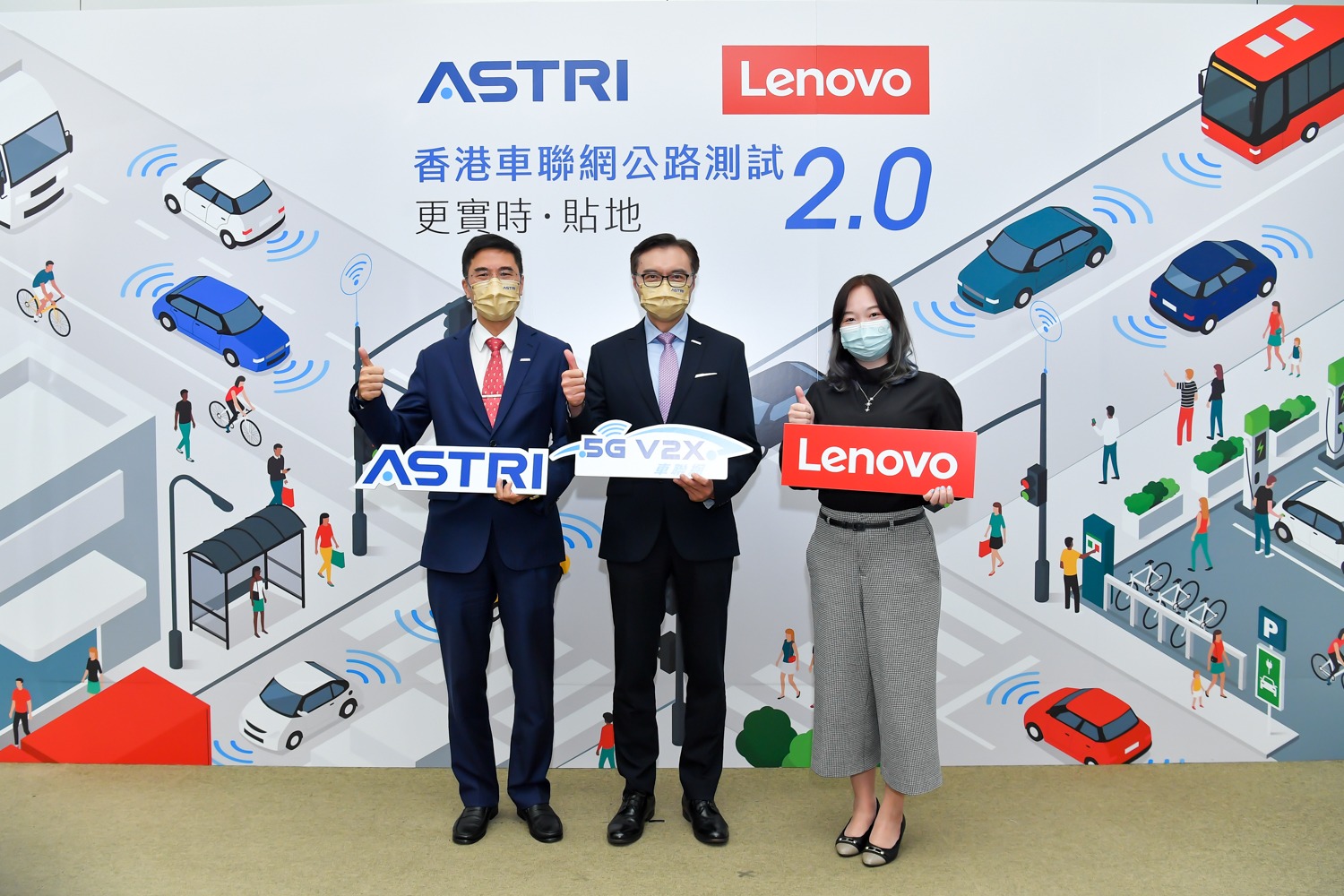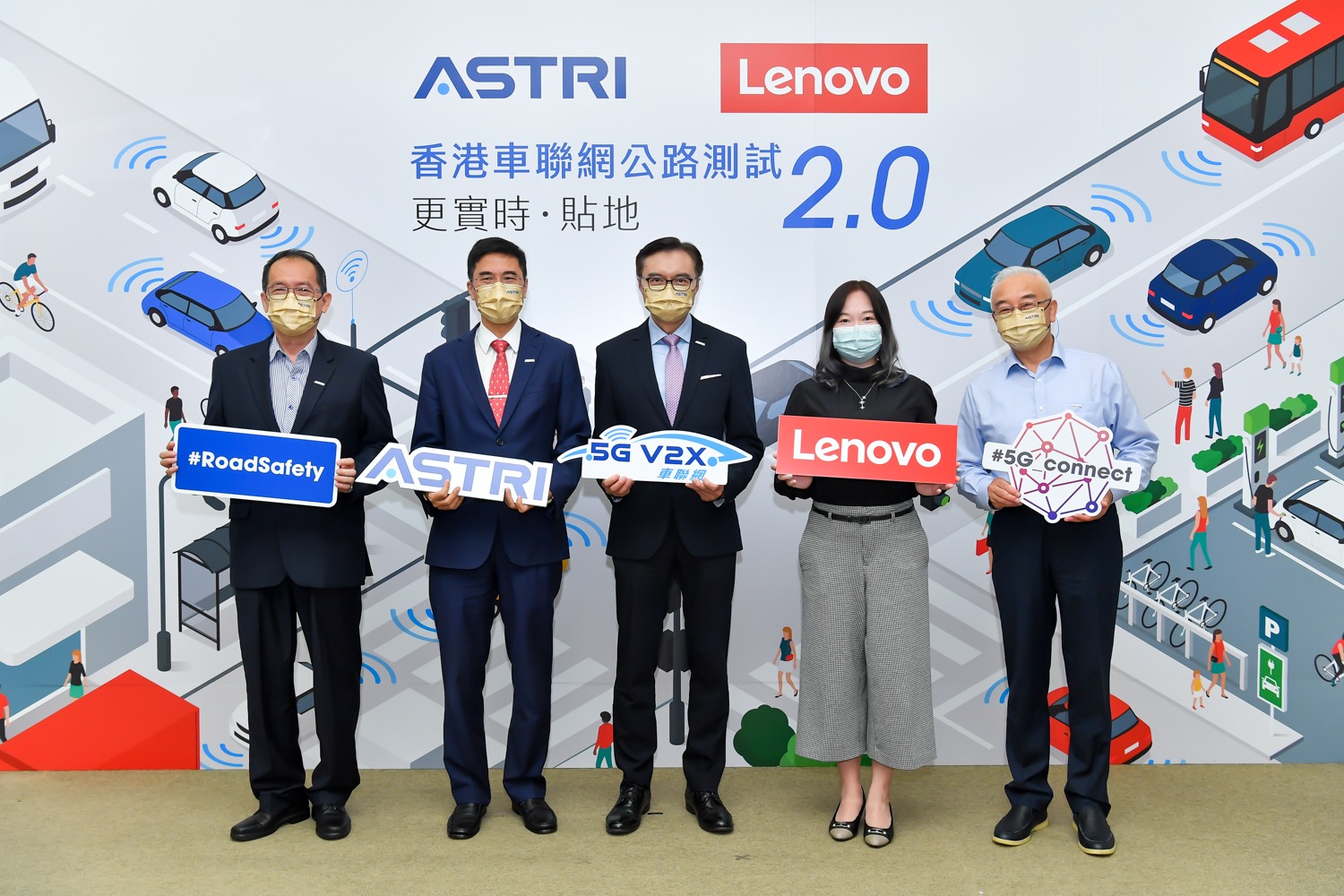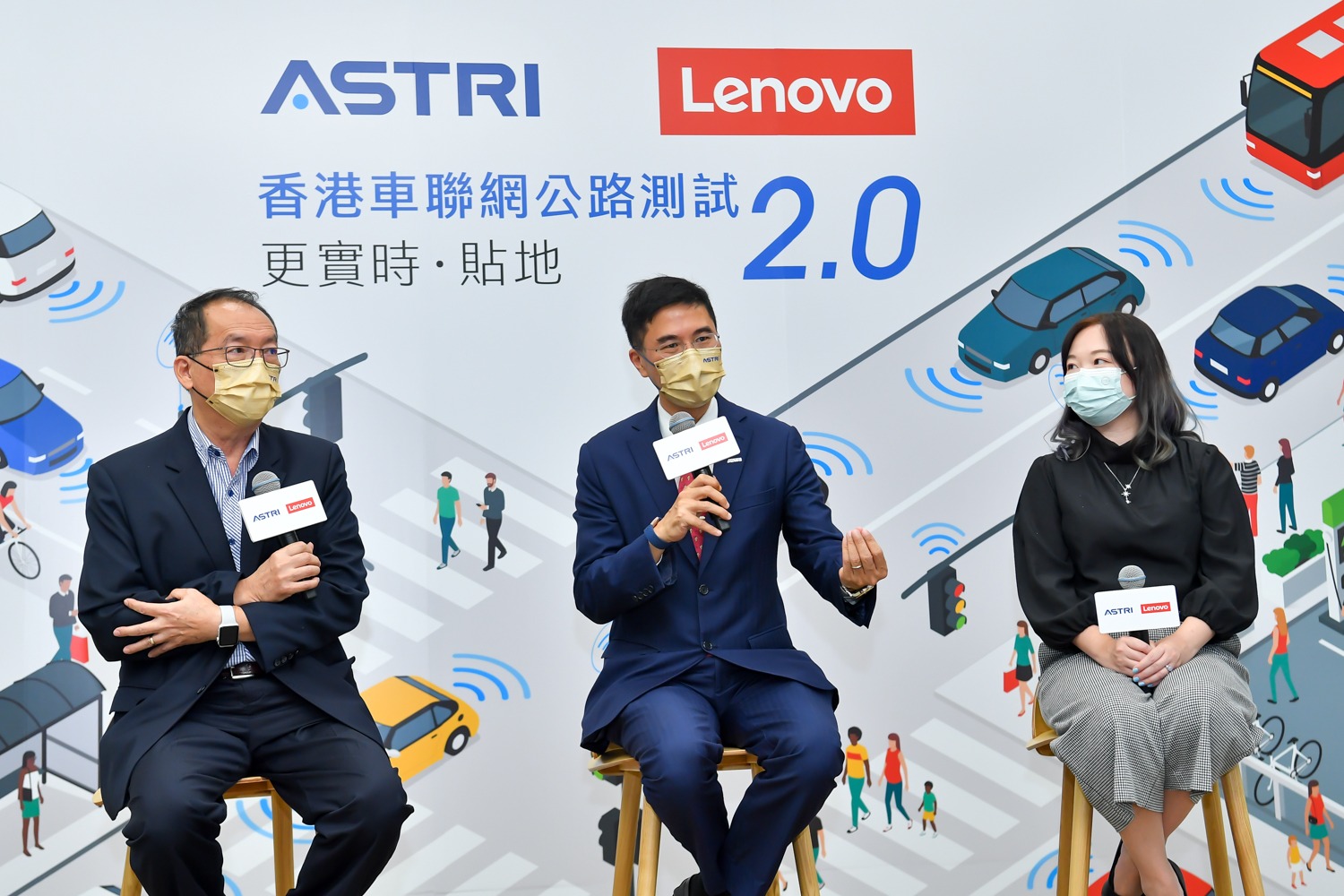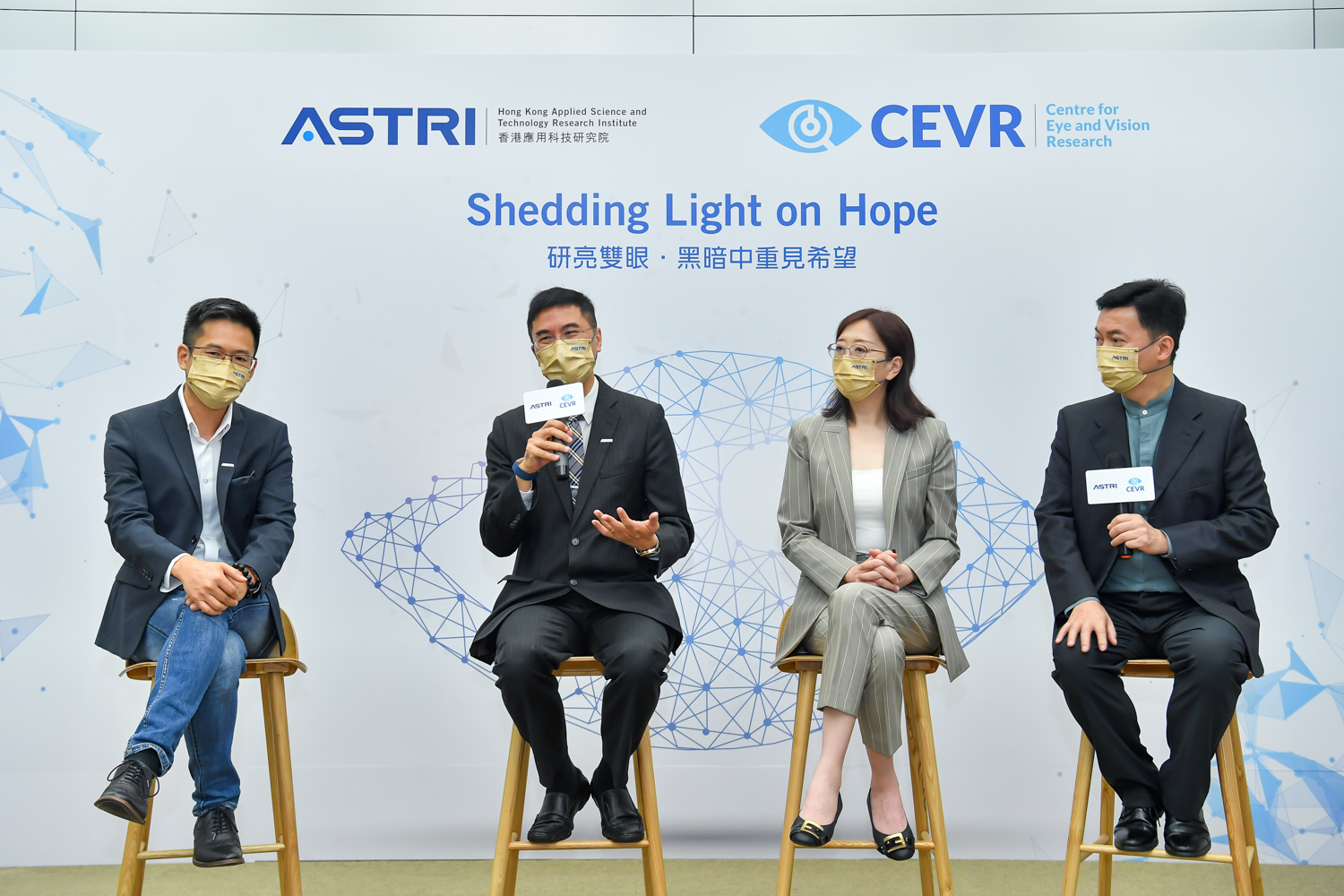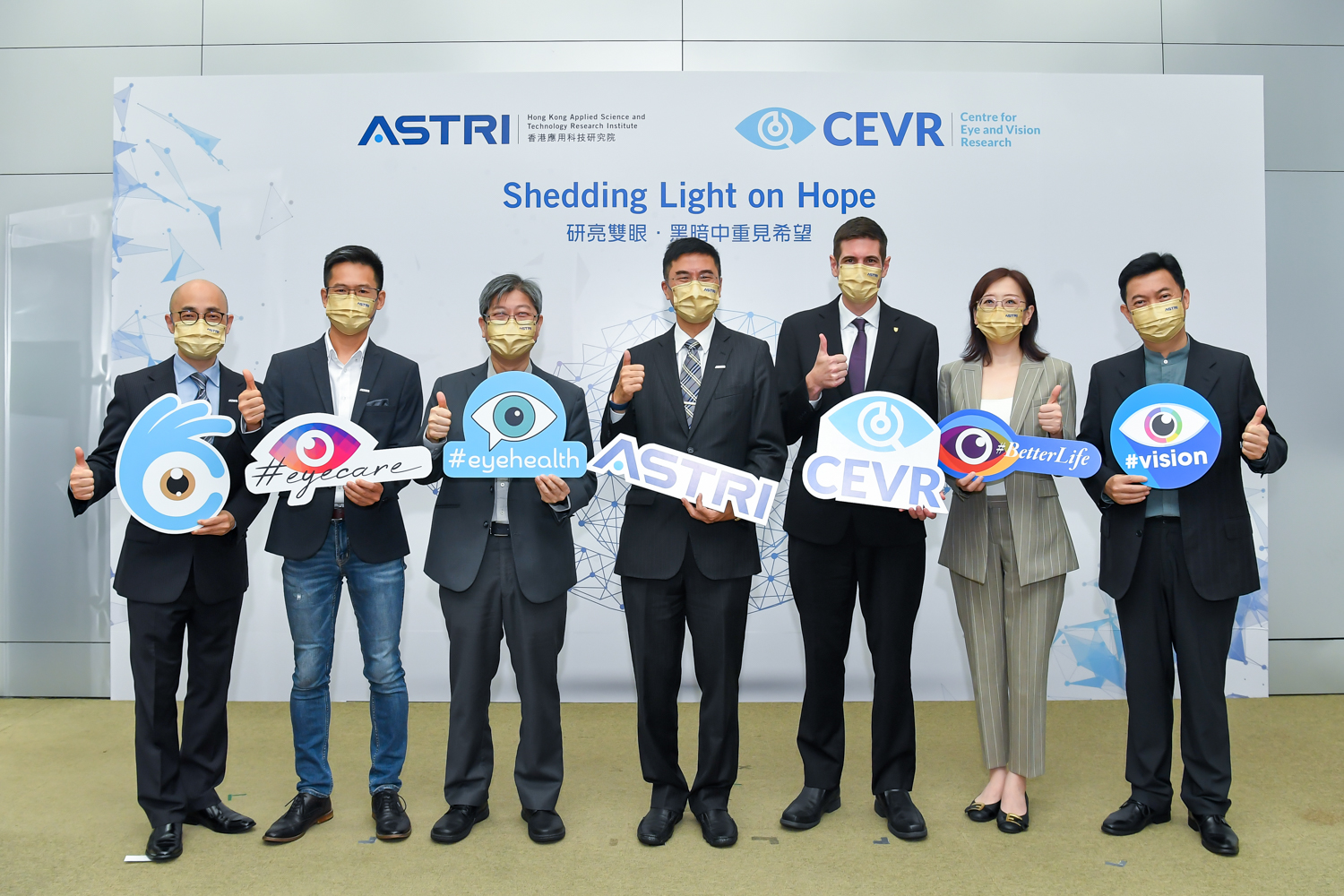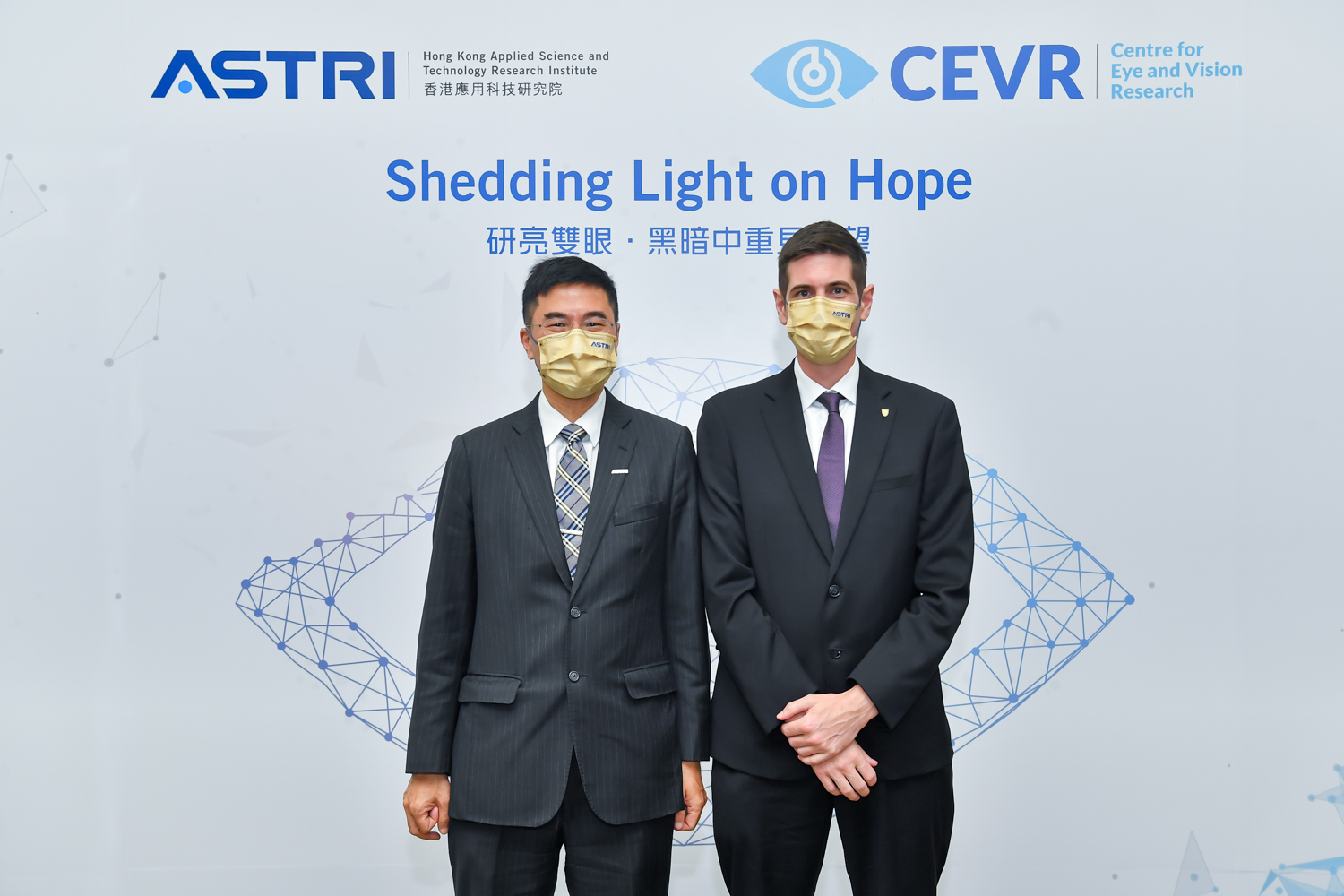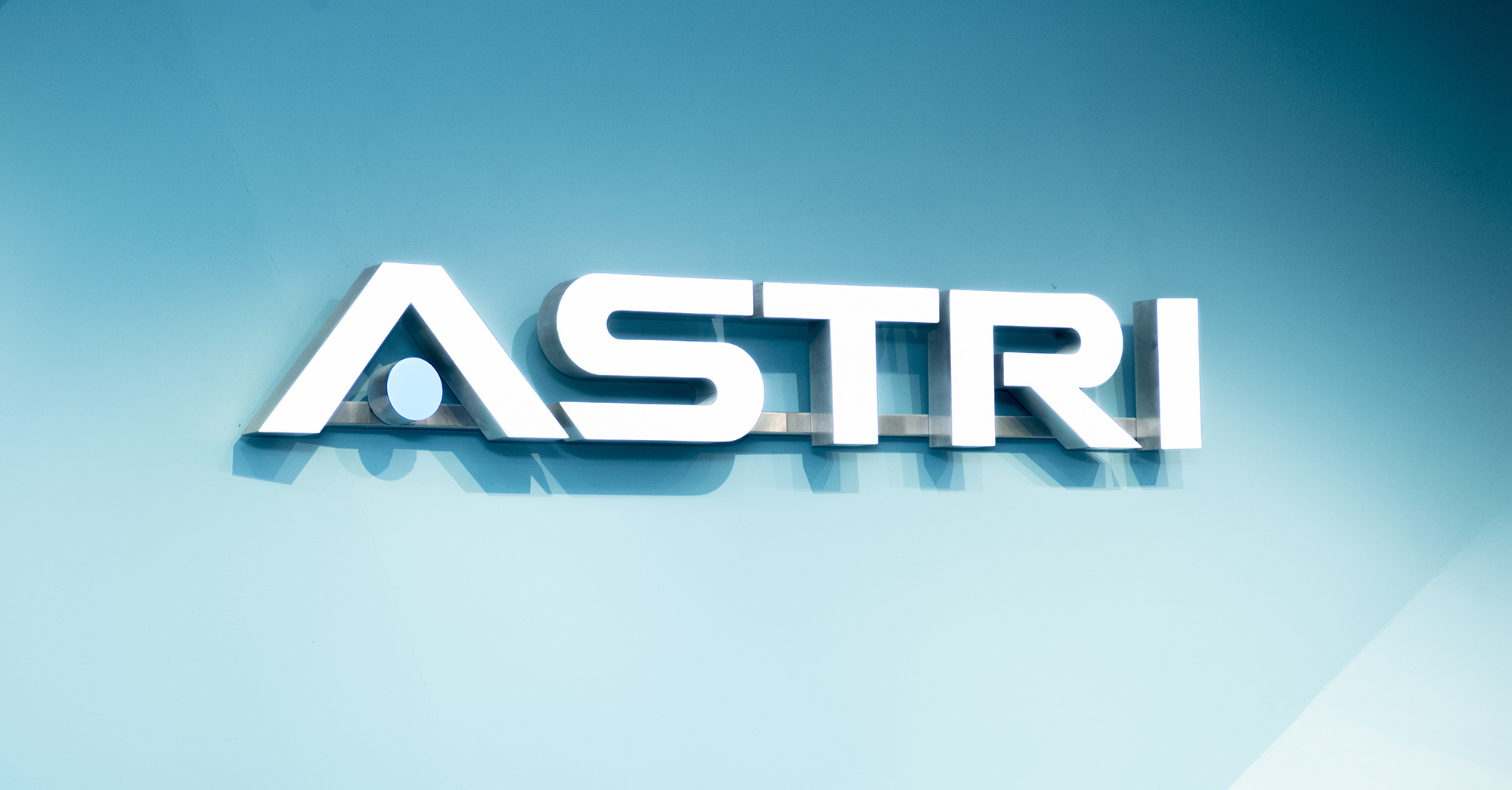[Hong Kong, 27 September 2022] Today marks a special day for the Hong Kong Applied Science and Technology Research Institute (ASTRI) and the C-V2X development. To fully align with the “Smart Mobility”, one of the initiatives in the “Smart City Blueprint 2.0” published by HKSAR Government, ASTRI has conducted the R&D of C-V2X technology since 2015, and kicked off the world’s largest C-V2X public road test in Hong Kong in 2021. In July this year, ASTRI partnered with Lenovo to carry out the second phase of C-V2X public road tests by leveraging high-speed, reliable and low-latency 5G network technology, and recently established a cooperation with Shenzhen SmartCity Technology Development Group (Shenzhen SmartCity) to release the connectivity roadmap for C-V2X platform crossing the border of the two cities.
To further expedite the integration of the Guangdong-Hong Kong-Macao Greater Bay Area (GBA), ASTRI signed a Memorandum of Understanding (MoU) with Shenzhen SmartCity today, 27 September. Under the agreement, ASTRI will conduct the research on key technologies of connectivity of smart transportation in the Greater Bay Area, R&D, design, standardization and testing of C-V2X application in Hong Kong, as well as research on the big data connectivity standards and security system; meanwhile, Shenzhen SmartCity Group will mainly conduct researches on the infrastructure of C-V2X in dominating urban cities scenarios, as well as R&D, design, standardization and testing of C-V2X application in Shenzhen.
ASTRI and Shenzhen SmartCity will collaborate to release the connectivity roadmap in Greater Bay Area, and plan to launch the Shenzhen-Hong Kong Shenzhen-Hong Kong C-V2X I&T Corridor in 2022-2023, carry out connectivity tests and scale applications in specific scenarios, as well as study and develop standard system, technical innovation, smart infrastructure, application service and other systems for connectivity, with an aim to complete the overall design, verification and implementation of C-V2X connectivity, as well as application design, implementation and verification of autonomous driving across the Greater Bay Area, including the establishment of a demonstration area in the border area of Hong Kong and Shenzhen during the “14th Five-Year Plan” period, that is by 2025. The roadmap will further outline C-V2X connectivity with Macau, Guangzhou and other places. ASTRI and Shenzhen SmartCity are looking forward to achieving the vision and goal of the coordinated development of smart transportation in the Greater Bay Area in 2035 to create an IoE Greater Bay Area and secure safer and more efficient Mobility as a Service for citizens.
Ir Sunny Lee, Wai-kwong, BBS, JP, the Board Chairman of ASTRI said, “The collaboration between ASTRI and Shenzhen SmartCity will improve C-V2X technology and expand the room for further cooperation in R&D of C-V2X, with an aim to facilitate the mobility for citizens in both cities, enable them to experience the benefits brought to their daily life by smart city and innovation technology. Furthermore, this project can drive the development of commercial transaction between the cities, promote the long-term development strategy of the GBA and coordinate among other cities in this area, so as to enhance synergy effect in terms of manpower, capital and R&D, take advantage of perspective advantages and integrate into the national development by providing unique R&D conditions.”
Dr Denis Yip, Chief Executive Officer of ASTRI said, “ASTRI’s C-V2X technology has gone beyond the wall of laboratory long ago. After years of testing on public roads, it has been a sophisticated technology that can bring benefits to the application, including effectively improve the driving safety. To further meet the full-scenario application requirements of autonomous driving and C-V2X functions, in the second phase of C-V2X, the real-time and data load capacity will be greatly improved, adding more testing elements, such as public transportation vehicles and application, to achieve a new level of smart operation and coordination and build up a solid foundation for the development of smart city in the further.”

Professor Sun Dong, JP, Secretary for Innovation, Technology and Industry

Ir Sunny Lee Wai-kwong, BBS, JP, Board Chairman of ASTRI

Dr Denis Yip, Chief Executive Officer of ASTRI (left) and Dr. Xiaochun Zhang, Chairman of Shenzhen SmartCity Technology Development Group Co., Ltd.

“2022 Shenzhen-Hong Kong C-V2X I&T Corridor” Press Conference – Kick Off Ceremony include
(in front of the screen from left) Mr Su, Dongzhe Chief Engineer, V2X System, ASTRI, Ms Fan Ho, Chief of Staff, Lenovo Central Asia Pacific and General Manager, Hong Kong and Macau, Lenovo, Mr Ken Wong, Executive Vice President and President, Lenovo Solutions & Services Group, Dr Denis Yip is the Chief Executive Officer (CEO) of ASTRI, Rebecca Pun Ting-ting Director of the Innovation and Technology Commission, Professor Sun Dong, JP, Secretary for Innovation, Technology and Industry, Ir Sunny Lee Wai-kwong, BBS, JP Board Chairman of ASTRI, Mr Stephen Ho Wai-chung Board Directors of ASTRI, Mr Edmund Lee Chi-wai Board Directors of ASTRI and Mr Fan Shijun, Chief Technologist, NSOFT, Communications Technologies of ASTRI,
And Remote Distance Participants (Upper of the Screen) Mr Feng Li, Deputy General Manager of Shenzhen SmartCity Communication Co., Ltd., Mr Yang Peng, vice president of Ant Group, Mr Huaping Chen, Deputy Director-general of Shenzhen Bureau of Industry and Information Technology (Member of Party Group of Shenzhen Bureau of Industry and Information Technology), Mr Hongbo Zheng, Member of the Standing Committee of the Shenzhen Municipal Committee, Dr Youming Wang, Secretary of Party Group of Shenzhen Science and Technology Innovation Committee, Director of Shenzhen Science and Technology Innovation Committee, Dr Xiaochun Zhang, Chairman of Shenzhen SmartCity Technology Development Group Co., Ltd., Dr Xin Zhang, Head of Technical Quality Department of Shenzhen SmartCity Technology Development Group Co., Ltd.
And (Bottom of the Screen) Mr LIU Maozhou, Inspector of the Department of Educational, Scientific and Technological Affairs of the Liaison Office of the Central People’s Government in the HKSAR.

